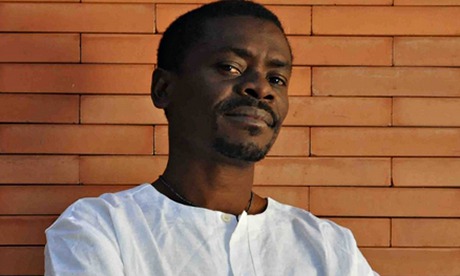It was hard enough to translate a novel set in Equatorial Guinea, but with Juan Tomás Ávila Laurel facing arrest the lack of information takes on a more sinister tone

Under threat ... the writer Juan Tomás Ávila Laurel
The internet has made the translator's job infinitely easier. No longer must we spend hours in dusty libraries, sifting through piles of reference books like archaeologists. We can consult online dictionaries, search for words in different contexts, find slang in forums; we can Google-image unknown objects, even Google-earth the location of a story. Yet translate something from a country like Equatorial Guinea and things aren't quite so easy.
There is no reliable news outlet in Equatorial Guinea: the government is one of the most corrupt and brutal in the world and independent journalism of all kinds is repressed. President Obiang and his cronies are very rich, but Guineans remain poor: most people don't have access to computers; those who do, have their internet activity monitored and censored.
The situation is even more extreme on Annobón Island. Put Annobón into Google Maps and you get a crude outline of a green blob – you have to click out 10 times before the west coast of Africa even comes into view. There is no online island newspaper, no blogosphere. There are hardly any photos.
Annóbon is the setting for By Night The Mountain Burns, a novel by Juan Tomás Ávila Laurel I translated for And Other Stories, which is due to be published this year. It tells the story of life on an island cut off from the rest of the world, starved of food and knowledge (Annobón became isolated and ostracised following a regime change in Equatorial Guinea). So it was perhaps appropriate for the translator not to have access to everything at the click of a button.
More
There is no reliable news outlet in Equatorial Guinea: the government is one of the most corrupt and brutal in the world and independent journalism of all kinds is repressed. President Obiang and his cronies are very rich, but Guineans remain poor: most people don't have access to computers; those who do, have their internet activity monitored and censored.
The situation is even more extreme on Annobón Island. Put Annobón into Google Maps and you get a crude outline of a green blob – you have to click out 10 times before the west coast of Africa even comes into view. There is no online island newspaper, no blogosphere. There are hardly any photos.
Annóbon is the setting for By Night The Mountain Burns, a novel by Juan Tomás Ávila Laurel I translated for And Other Stories, which is due to be published this year. It tells the story of life on an island cut off from the rest of the world, starved of food and knowledge (Annobón became isolated and ostracised following a regime change in Equatorial Guinea). So it was perhaps appropriate for the translator not to have access to everything at the click of a button.
More
No comments:
Post a Comment